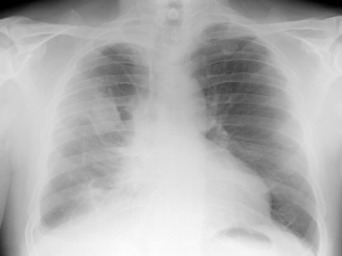
Veteran Population Runs a Higher Risk of Developing Lung Cancer From Smoking If Exposed to Asbestos, Dangerous Toxins
An independent medical task force has recommended that individuals at a significant risk for developing lung cancer – heavy smokers – should undergo annual screenings. The recommendations by the United States Preventative Services Task Force urge those that fall into the high-risk category should have an annual low-dose radiation CT scan.
Behind the recommendation is prevention, where the hope is that through regular CT screenings, doctors will be able to chart any significant changes in the lung tissue of heavy smokers. For many in the medical community, suggesting that annual doses of radiation is counterintuitive. But, according to the task force, the benefits of diagnosing lung cancer early supersede any side effects of an annual low-dose radiation CT scan.
This recommendation is a surprising boon for the veteran population who, historically, have nearly forty percent more cigarette smokers than the civilian population. By and large, veterans typically develop lung cancer more frequently than the civilian population.
Further compounding the likelihood of developing lung cancer from smoking is that often many servicemen and women are exposed to hazardous materials. Exposure to environmental, biological or other toxins such as Agent Orange or asbestos in heavy smokers increases the possibility of developing lung cancer. Essentially, the damage inflicted on the lungs by smokers is worsened by exposure to a toxin such as asbestos.
In the case of asbestos, many Navy veterans, in particular, were exposed to asbestos while working in or around ships, submarines or shipyards. Members from different military branches have also been exposed to asbestos during warfare when buildings containing asbestos were damaged, destroyed or burned allowing small particles to contaminate the air. This exposure can lead to other diseases, like asbestosis and mesothelioma cancer, so the regular screenings could potentially provide early detection of other serious lung afflictions.
Reflecting on the task force’s recommendations, Laurie Fenton Ambrose, President of the Lung Cancer Alliance, urges the Department of Defense and the Department of Veterans Affairs to ensure that those veterans at the greatest risk are made “aware of the stakes.” Fenton Ambrose urges both departments to begin annual lung cancer screenings as soon as possible. The screenings could lead to early detection of other lung diseases like mesothelioma and asbestosis as well as lung cancer.
Currently, the lung cancer screenings are only offered at a handful of VA health centers across the country, and will run as a pilot program for two years.
ATTENTION READERS
We See The World From All Sides and Want YOU To Be Fully InformedIn fact, intentional disinformation is a disgraceful scourge in media today. So to assuage any possible errant incorrect information posted herein, we strongly encourage you to seek corroboration from other non-VT sources before forming an educated opinion.
About VT - Policies & Disclosures - Comment Policy



